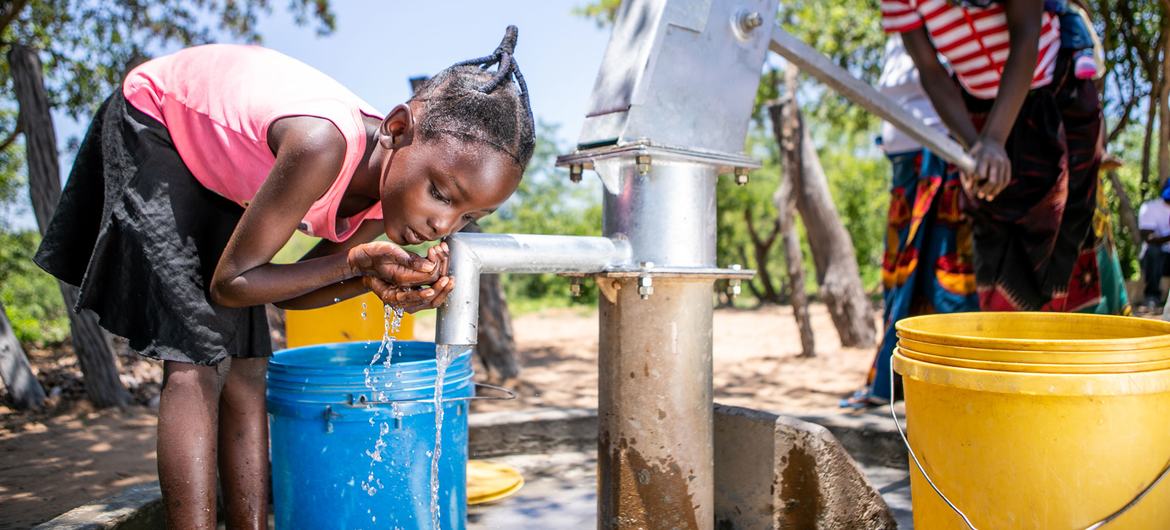
5 things you should know about the UN 2023 Water Conference
© UNICEF/Karin Schermbrucker. A young girl collects water from a recently rehabiliatitaed well in Gwembe Valley, Zambia
United Nations, 19 March 2023
The UN 2023 Water Conference, which takes place at UN Headquarters from 22-24 March, is being hailed as a once-in-a-generation opportunity to accelerate progress towards universal access to safe water and sanitation by 2030.
Water is at the core of sustainable development. It supports all aspects of life on Earth, and access to safe and clean water is a basic human right. However, decades of mismanagement and misuse have intensified water stress, threatening the many aspects of life that depend on this crucial resource.
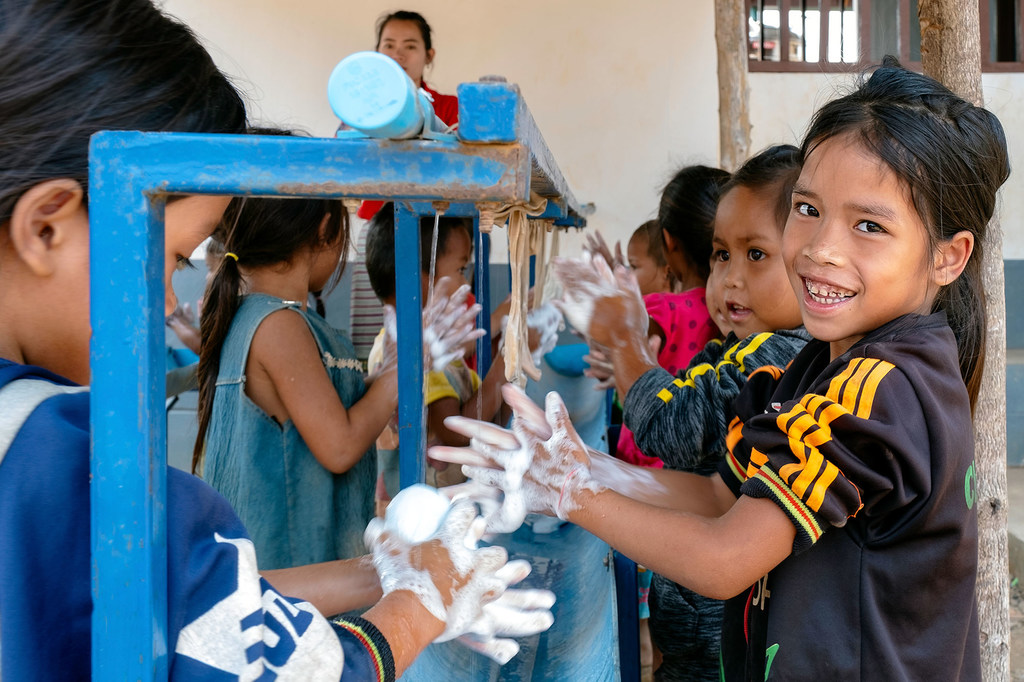
© UNICEF. Clean water is essential to human health.
1. We are facing a global water crisis
Water is essential for human well-being, energy and food production, healthy ecosystems, gender equality, poverty reduction and more.
But we are currently facing a global water crisis. Billions of people around the world still lack access to water. It is estimated that more than 800,000 people die each year from diseases directly attributed to unsafe water, inadequate sanitation, and poor hygiene practices.
Demands for this precious resource continue to rise: about four billion people experience severe water scarcity for at least one month of the year. With water being so crucial to many aspects of life, it is important to ensure its protection and proper management to ensure that everyone has equitable access to this essential resource by 2023.
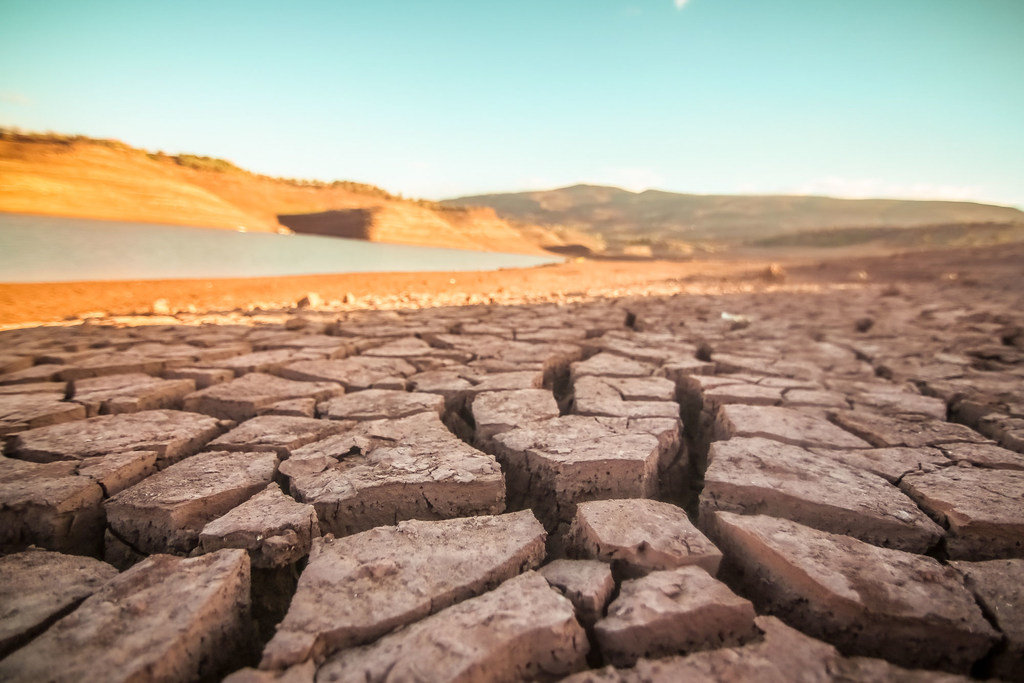
WMO/Edward-Ryu. Droughts drastically impact the availability of water for vulnerable communities.
2. Water and climate are inextricably linked
From increasing floods, unpredictable rain fall, and droughts, the impacts of climate change on water can be seen and felt at an accelerating rate. These impacts threaten sustainable development, biodiversity, and people’s access to water and sanitation.
According to the latest State of the Climate Services on Water report by the World Meteorological Organization (WMO), water-related hazards have increased by an alarming rate. Since 2000, floods have increased by 134 per cent with the duration of droughts increasing by 29 per cent.
But water can also be a key solution to climate change. Carbon storage can be improved by protecting environments like peatlands and wetlands, adopting sustainable agricultural practices can help reduce stress on freshwater supplies, and improving water supply and sanitation infrastructures can ensure that everyone has access to vital resources in the future.
Water must be at the centre of climate policies and action. Sustainable water management can help build resilience, mitigate impacts of climate change, and protect societies and ecosystems. Sustainable, affordable, and scalable water solutions must become a priority.
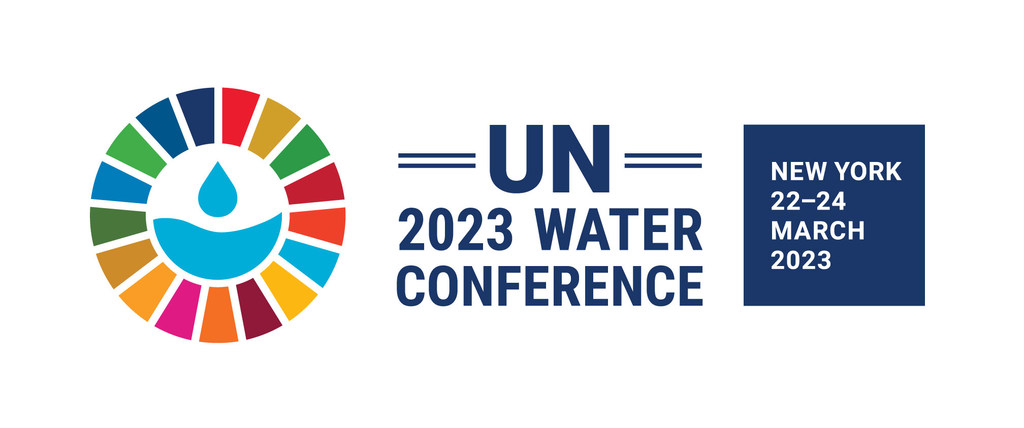
United Nations. UN 2023 Water Conference
3. Four decades on, bold new commitments are on the table
The UN 2023 Water Conference will be a crucial moment to decide on concerted action to “take action and address the broad challenges surrounding water,” in the words of Li Junhua, UN Under-Secretary-General for Economic and Social Affairs (DESA) and the Secretary-General of the event.
The Conference will bring Heads of State and Government, Ministers, and stakeholders across all different sectors together achieve internationally agreed goals, including Sustainable Development Goal 6 of the UN’s 2030 Agenda for a fairer future; ensuring access to safe water, sanitation and hygiene for all.
One of the main outcomes of the Conference will be the Water Action Agenda that will capture all water-related voluntary commitments and follow on their progress. The Agenda aims to encourage Member States, stakeholders, and the private sector to commit to urgent actions to address today’s water challenges.
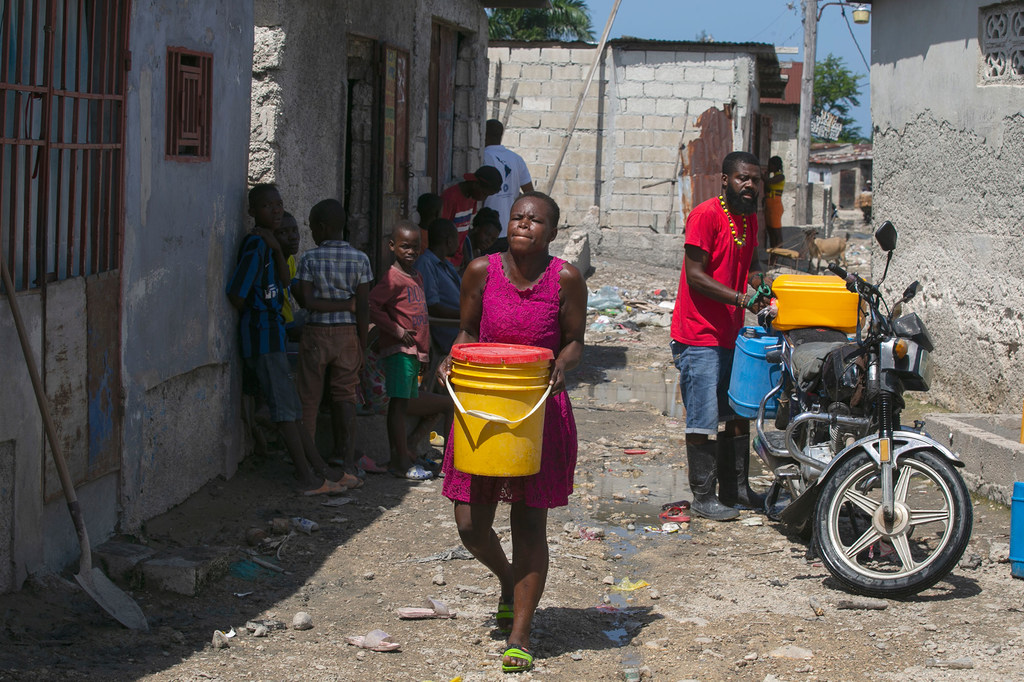
© UNICEF/Odlyn Joseph. A woman in Port-au-Prince, Haiti, carries water she has bought from a local trader.
4. Focus on five key areas
The Conference will feature five “interactive dialogues” to strengthen and accelerate action for key water areas.
The interactive dialogues also support the five principles of the SDG 6 Global Acceleration Framework, an initiative to deliver fast results towards ensuring the availability and sustainable management of water and sanitation for all by 2030.
The five interactive dialogues are:
- Water for Health: Access to safe drinking water, hygiene, and sanitation.
- Water for Sustainable Development: Valuing Water, Water-Energy-Food Nexus and Sustainable Economic and Urban Development.
- Water for Climate, Resilience and Environment: Source to Sea, Biodiversity, Climate, Resilience and Disaster Risk Reduction.
- Water for Cooperation: Transboundary and International Water Cooperation, Cross Sectoral Cooperation and Water Across the 2030 Agenda.
- Water Action Decade: Accelerating the implementation of the objectives of the Decade, including through the UN Secretary-General’s Action Plan.
Take a closer look at each of the interactive dialogues here.
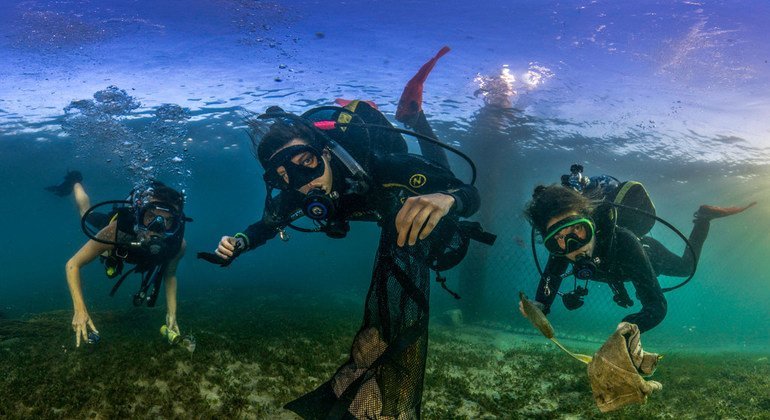
UN World Oceans Day/Rosie Leaney. Leisure divers clean up plastic pollution in the sea off the city of Sydney in Australia
5. How can you get involved?
Water is a critical issue that affects everyone. As UN Member States, governments and stakeholders prepare to make their own water commitments, the UN is calling on everyone to take their own action. Any action – whether small or big – can help accelerate change and action towards achieving the goals and targets of SDG 6.
Here are some simple actions that can be incorporated into daily routines:
- Take shorter showers and reduce your water waste in your home. With 44 per cent of household wastewater not being safely treated, taking shorter showers is a terrific way to save this precious resource. Lazy Person’s Guide to Saving Water
- Participate in clean-ups of local rivers, lakes, or wetlands. Plant a tree or create your own water garden. These actions can help protect water ecosystems from pollution and reduce the risk of flooding and store water efficiently.
- Raise awareness on the critical connection between toilets, sanitation, and menstruation. Break taboos by starting conversations in your local community, school, or workplace.
Learn more about the goals and targets of SDG 6 and continue to advocate for solutions at the local and national level. Support water-related campaigns and find out other ways you can incorporate simple actions that can help protect water resources.
The original article appeared here.